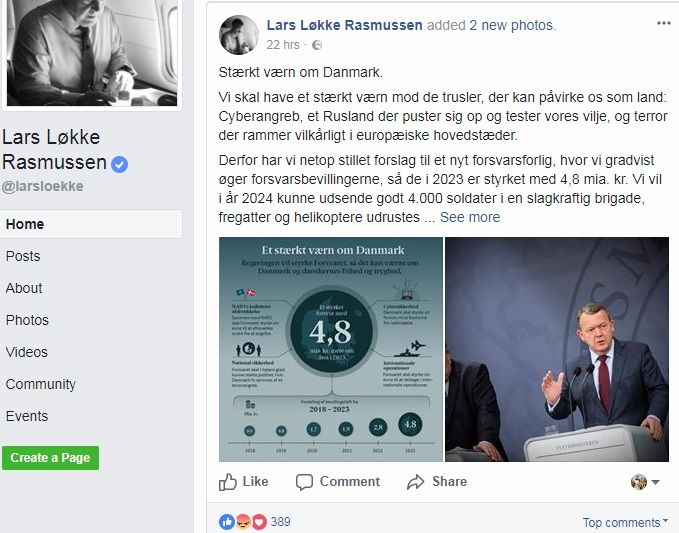It may seem pretty obvious, but now it’s been proven. Liking political posts on Facebook can reveal your voting habits for upcoming elections.
Researchers from the University of Copenhagen (KU) have come up with a new algorithm that lets them, with a high degree of certainty, guess your political leanings based on which political posts on social media you like.
Based on the seven most recent ‘likes’ of political posts, the algorithm can guess which party you will vote for in upcoming elections with a probability success rate of 71 percent. By seeing just your latest ‘like’, the algorithm can guess with a 44 percent certainty.
“The main conclusion is that there is very, very little that we randomly like, so we can predict people’s political leanings incredibly accurately,” said Tobias Bornakke, a PhD student at the Department of Sociology at KU who took part in the research.
READ MORE: More than two-thirds of all Danish companies active on social media
Polling impact
The research is based on the ‘liking’ behaviour on Facebook of over 2 million people in Denmark. In future, the research could transform traditional polling procedures.
Based on the distribution of voter ‘likes’ across various parties, it’s possible to get a far more nuanced insight into voter behaviour and voting in general.
“We can follow what drives voter groups’ ‘likes’ live. The strength is that we can see what makes people change opinions and not just make assumptions afterwards. We have topicality and can show it immediately,” said Bornakke.
The findings have recently been published in the scientific journal, PLoS ONE.















